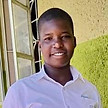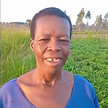
We're creating a world where
all children get the
quality education
we deserve
Join Us!
Urgent
Global Education Crisis
Today, 70% of children in low and middle income countries cannot read to understand a simple story
by age 10.
Access to quality education is a fundamental human right that should not be dependent on a birth lottery.
We will not flourish as a global community until every child gets the quality education we all need to thrive.

Uganda: a Microcosm of Our Global Challenge

80% of Ugandan children do not achieve minimum proficiency levels
in reading and math by the end of primary school.
Half of Uganda’s 50 million citizens are younger than 15 years old,
making a solution even more critical.

Vision
Quality Education, By and For All
Mission
Community-Led Education Reform
The
Power
of Community
Community-led education reform harnesses the power of parents, pupils, teachers, and local leaders to revolutionize education quality in Uganda and beyond.
They understand better than anyone the biggest challenges their school faces and how to overcome them together.
Anyone who has ever benefited from an effective PTA knows the transformational power of this force.


Our Impact
36,000 students received a higher quality education in 2025


1,800 students who dropped out, returned to school in the last 2 years
$10 per child per year is the cost of this impact, while educating a child is priceless


12% more students in our partner schools passed Uganda's high stakes national exams, despite starting with
under performing schools
Click the photos below for inspiring stories that
bring the impact to life:
Tolet Ivan
S1 Learner
Works to Pay his School Fees
Nezima Sabira
P7 Pupil
Excels in English
Agnes & Adokorach
Mother-Daughter Duo
Create a Boarding Section


Our Approach

We organize communities to own academic results in their existing elementary schools.
We partner with fellow parents, students, teachers and community leaders in Uganda who identify and implement 5 unique goals annually in their local public schools to improve education outcomes.
Popular goals include meals at school, a boarding section for older pupils, paying school fees on time, bringing back students who dropped out, hiring more teachers, and many more.
Our 2030 Plan
Join our Movement to Unleash
Quality Education By and For All!


“We are the ones we have been waiting for”
~ June Jordan

Our Team
Meet Some of Our Fun Crew
Ochokoro Christine Community Coach
Oloya W.S. Geoffrey
Village Education Volunteer

Peter BenHur Nyeko
Global Champion Board
Honoring our values of community-led, bottom-up change, we use proximate decision making: all of our decisions are made by the people most impacted by that decision.
Our unconventional, inverted organisational structure shows the spectrum from decision-makers to supporters:
Decisions
1,000s of Community Volunteers
1,000 Goal Committee Members
150 Education Champions
51 Village Education Volunteers
15 Community Coaches
2 District Coordinators
1 Team Coach
7 Global Champions
Board Members
Coaching & Support
Our Partners
51 Partner Schools
100s of Generous Donors and Partners







